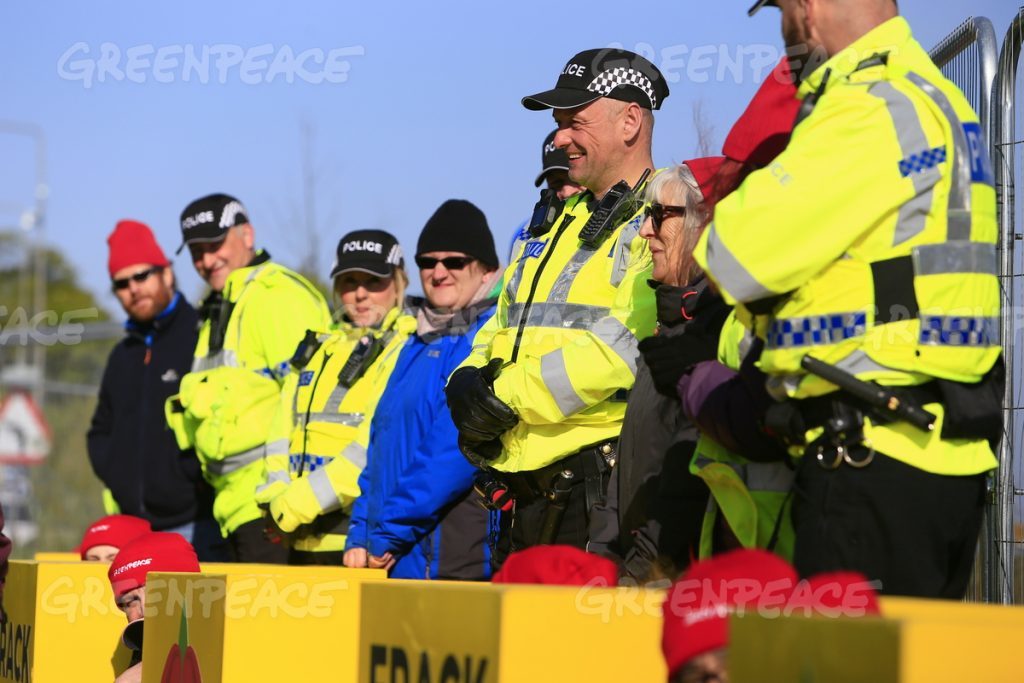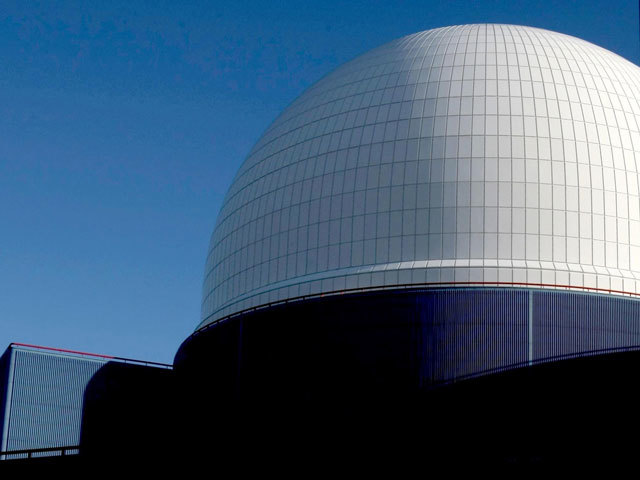
Campaigners have criticised the Government for failing to consider measures which they claim could reduce the environmental impact of fracking at Cuadrilla’s controversial Preston New Road site.
Friends Of The Earth argues that the Environment Agency (EA) failed to ensure that the best available techniques are being used to treat waste water produced by fracking at the energy firm’s site in Little Plumpton, Lancashire.
The environmental campaign group says the EA should have considered the use of a better technique for dealing with “flowback fluid”, fluid which returns the surface after fracking, when dealing with Cuadrilla’s application to vary its fracking permit in December 2017.
At a High Court hearing in London on Thursday, Matthew Reed QC said the EA did not address “whether better techniques for the on-site treatment and reuse of flowback fluid were available”.
Hydraulic fracturing, known as fracking, is a process to extract shale gas whereby rock is drilled into and “fractured” before water, sand and chemicals – “fracturing fluid” – are pumped into it to release gas.
Mr Reed explained that flowback fluid, which is “the main form of waste product deriving from the process that arrives at surface level”, can either to be treated for reuse in the fracking process or taken off-site for disposal.
He submitted that a technique called electrocoagulation, which involves passing a current through the flowback fluid to remove heavy metals and suspended salts, “reduces or removes the need for additional mains water to be added”.
Mr Reed said the EA had “failed to consider the appropriateness of the use of electrocoagulation in the treatment of flowback fluid”.
He added that electrocoagulation “is occurring in America on a commercial basis and that suggests there might be reductions in the use of fresh water of up to 50%”.
Both the EA and Cuadrilla, however, argue that there was no duty for the agency to consider whether best available techniques were being used because the waste management plan accompanying the original permit was sufficient.
In written submissions, the EA’s barrister Tim Buley said that a waste management plan only needed to be reconsidered if Cuadrilla’s planned alterations would give rise to “substantial change”.
He argued that Friends of the Earth was asking the court to apply a “vague and uncertain test” for when such plans needed to be reconsidered, adding that their case was “hopeless”.
Mr Buley submitted that the group needed to show the EA’s conclusion that the variation had no implications for risk to groundwater was “not merely wrong, but irrational” which was “impossible”.
The EA also contends that electrocoagulation does not represent the best available technique for dealing with flowback fluid.
In written evidence, Gary Edwards, a senior adviser at the EA, described the process as a “promising technique that could potentially be used alongside other water treatment processes”, but said trials had “highlighted a number of factors that are likely to prove challenging to a full-scale flow process”.
The move is the latest court case relating to fracking at Cuadrilla’s Preston New Road site.
In October, three anti-fracking protesters who were jailed for causing a public nuisance by climbing onto lorries at the site were freed after the Court of Appeal found their sentences were “manifestly excessive”.
Earlier the same month, Lancashire resident Bob Dennett unsuccessfully tried to get a High Court injunction to block Cuadrilla from fracking at Preston New Road.
And this January, the Court of Appeal threw out a claim by the Preston New Road Action Group that the Government’s decision to approve fracking at the site was unlawful.
Cuadrilla began the fracking process at Preston New Road in mid-October, and announced earlier this month that shale gas had begun flowing at the site for the first time.
The company, however, has twice been forced to halt operations after underground tremors were detected.
Mr Justice Supperstone – who will hear submissions from Friends of the Earth, the EA and Cuadrilla – is expected to reserve judgment in the case.
Recommended for you
